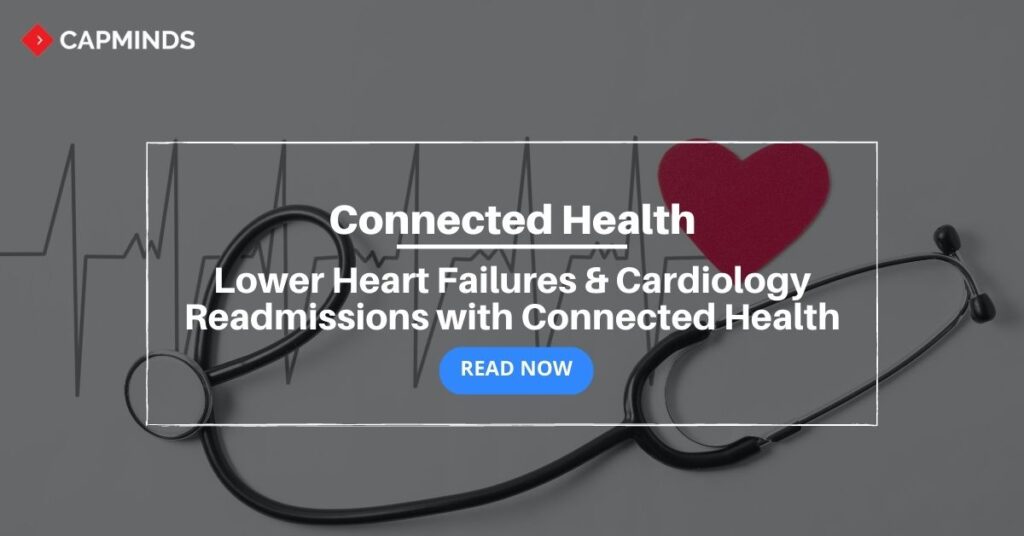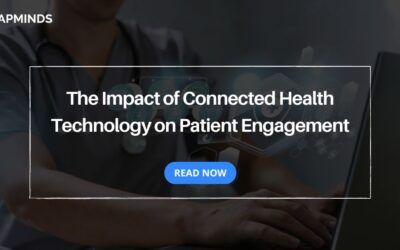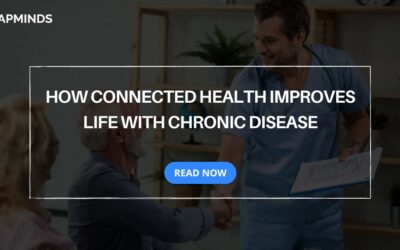Lower Heart Failures and Cardiology Readmissions with Connected Health
Remote Patient Monitoring (RPM) holds great promise in reducing cardiology readmissions for patients with heart failure when planned and executed well, following proper protocols and standards.
In this blog, we will see how connected health utilizing RPM can help in this regard.
1. Continuous Monitoring
- RPM allows providers to monitor patients with heart failure on an ongoing basis remotely
- Through the use of wearable devices, patients’ vital signs like heart rate, blood pressure, and oxygen saturation levels, can be continuously tracked
- This enables early detection of any signs of deterioration or worsening heart failure symptoms
RELATED: Top 6 Most Demanded Connected Health Devices in 2023
2. Early Intervention
- With RPM, providers receive real-time data on patients’ cardiac health
- By closely monitoring the collected data, healthcare teams can identify changes or trends that may indicate a worsening condition
- Prompt interventions can be initiated like medication adjustments, lifestyle modifications, or timely medical consultations, to prevent the need for readmission
RELATED: Cardiology Challenges for 2023: Easily Solve with Connected Health
3. Medication Adherence
- RPM can also help improve medication adherence among heart failure patients
- Connected health platforms can provide reminders and alerts for patients to take their prescribed medications as scheduled
- Additionally, providers can remotely monitor medication adherence patterns and intervene if any deviations are detected, ensuring patients are following their medication regimens properly
4. Patient Education & Self-Management
- RPM enables continuous patient education and self-management support
- Through connected health platforms, providers can share educational resources, provide personalized feedback, and engage in remote consultations with patients
- This empowers patients to better understand their condition, adhere to self-care strategies, and make informed decisions about their health, reducing the likelihood of complications and readmissions
5. Early Warning Systems
- RPM platforms can employ advanced algorithms to identify specific patterns or indicators that may signal an impending cardiac event or heart failure exacerbation
- By setting up early warning systems, providers can receive alerts when patients’ data deviates from normal ranges, allowing for timely interventions to prevent readmissions
6. Care Coordination & Communication
- Connected health platforms facilitate seamless communication and coordination among healthcare providers involved in a patient’s care
- Real-time access to RPM data allows for better collaboration between primary care physicians, cardiologists, nurses, and other members of the care team
- This ensures that interventions and care plans are coordinated, reducing the chances of gaps or redundancies in care that could contribute to readmissions
7. Remote Follow-up & Telemedicine
- RPM enables remote follow-up visits and telemedicine consultations for heart failure patients
- Rather than requiring in-person visits for routine check-ups, patients can have virtual appointments, reducing the burden of travel and facilitating timely access to healthcare professionals
- Remote consultations also allow for frequent monitoring of patient’s progress and addressing any concerns promptly
8. Personalized Care Plans
- RPM data can provide valuable insights into individual patient trends and responses to treatment
- With this information, providers can develop personalized care plans tailored to each patient’s needs
- These plans can include specific monitoring parameters, medication adjustments, lifestyle recommendations, and self-management strategies, helping to prevent complications and readmissions
9. Enhanced Patient Engagement
- Connected Health and RPM empower patients to actively participate in their own care and make informed decisions regarding their health
- Patients can access their RPM data, track their progress, and gain insights into their condition through user-friendly interfaces and mobile applications
- This increased engagement promotes self-awareness and motivates patients to adhere to their treatment plans, make necessary lifestyle modifications, and seek timely medical attention when needed
- By actively involving patients in their care, connected health reduces readmissions by fostering a sense of ownership and responsibility for their well-being
10. Data-Driven Analytics & Predictive Modeling
- Integrating RPM data with advanced analytics and predictive modeling capabilities offers significant opportunities for reducing cardiology readmissions
- By analyzing large volumes of patient data, machine learning algorithms can identify patterns, risk factors, and predictive indicators of heart failure exacerbations or complications
- This enables providers to proactively intervene and implement preventive measures based on individual patient profiles
- Predictive models can help identify high-risk patients who may require closer monitoring or targeted interventions, allowing healthcare teams to allocate resources effectively and reduce readmission rates
Connected Health Services from CapMinds
Improve patient outcomes by providing timely, personalized care that is more accessible, convenient, and cost-effective than traditional healthcare with CapMinds Smart connected health services. Monitor patients remotely, detect potential health issues early on, and intervene before they become more serious. Our services help reduce healthcare costs by avoiding hospital readmissions, preventing complications, and improving medication adherence.
Our Connected Health features include and are not limited to;
- Remote Patient Monitoring
- Telehealth/telemedicine
- Personalized medicine
- Health Information Exchange
- Patient Engagement
- AI & ML
- Remote care coordination
- Digital therapeutics
- Wearable device integrations
CapMinds provide smart and advanced integration & implementation of connected health device services like Smart Meter, Google Fit, Dexcom, Ambrosia, Freestyle Libre, Tidepool, etc., to make you better track and monitor your vitals and be connected with healthcare providers.
“Let us help you be exceptionally connected for better patient outcomes”




